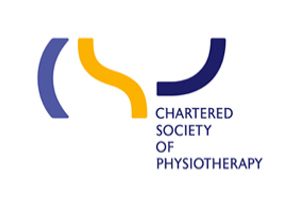
posted 1st August 2025
If you or a loved one has been recommended neuro physio, you might be wondering how it differs from the physiotherapy you've heard about for sports injuries or back pain. Understanding these differences can help you feel more confident about your treatment journey and know what to expect.
Neuro physio is a highly specialised branch of physiotherapy that focuses specifically on conditions affecting the brain, spinal cord, and nervous system. While it shares some foundations with regular physiotherapy, the approaches, techniques, and goals can be quite different.
What Makes Neuro Physio Different from Regular Physiotherapy?
The fundamental difference lies in what each type of physiotherapy aims to address. Regular physiotherapy typically focuses on muscles, joints, bones, and soft tissues - helping with injuries, pain, and mechanical problems in the body.
Neuro physio, on the other hand, works with the complex relationship between your brain and your body. When neurological conditions affect the nervous system, they can impact how your brain communicates with your muscles, affecting movement, balance, coordination, and sensation.
This means neuro physiotherapists need specialised training to understand how neurological conditions affect movement and function. They learn specific techniques that can help retrain the brain and nervous system, taking advantage of something called neuroplasticity.
What Is Neuroplasticity and Why Does It Matter?
Neuroplasticity is your brain's remarkable ability to form new connections and pathways, even after injury or disease. This is perhaps the most exciting difference between neurological and regular physiotherapy.
While regular physiotherapy might focus on strengthening a weak muscle or improving joint flexibility, neuro physio harnesses neuroplasticity to help your brain learn new ways to control movement. This process can help restore function that may have been lost due to stroke, brain injury, or progressive neurological conditions.
Think of it like creating new roads when the main highway is blocked. Your brain can develop alternative routes to send messages to your muscles, helping you regain movement and function.
How Do Assessment Approaches Differ?
When you see a regular physiotherapist for a shoulder injury, they'll assess your joint range of motion, muscle strength, and pain levels. The assessment is primarily focused on the physical structures involved.
Neuro physio assessment is more complex. A neuro physiotherapist will evaluate not just your physical abilities, but how your brain and nervous system are working together. They might assess your balance reactions, how you process sensory information, your cognitive function during movement tasks, and how fatigue affects your performance.
This comprehensive assessment helps them understand the neurological factors affecting your movement, not just the physical ones. For families in Essex and London dealing with neurological conditions, this thorough approach ensures treatment addresses the root neurological causes, not just the symptoms.
What Specialised Techniques Do Neuro Physiotherapists Use?
Neurological physiotherapists use techniques specifically designed to promote neuroplasticity and retrain the nervous system. These might include:
Motor learning approaches help your brain relearn movement patterns through repetitive, task-specific practice. Unlike regular physiotherapy exercises that might focus on strengthening, these exercises are designed to help your brain remember and refine movement patterns.
Biofeedback systems provide real-time information about your body's responses, helping you learn to control functions that may have been affected by neurological conditions. This technology isn't typically used in regular physiotherapy.
Neurodevelopmental treatment techniques use specific handling and positioning to facilitate normal movement patterns. These hands-on techniques require specialised training that goes beyond regular physiotherapy education.
Task-specific training focuses on practicing real-world activities in a way that promotes neuroplasticity. Rather than generic exercises, you might practice the specific movements you need for daily activities like walking, reaching, or getting dressed.
Who Benefits from Neuro Physio?
Regular physiotherapy helps people with musculoskeletal problems - sports injuries, arthritis, back pain, or recovery after orthopedic surgery. These conditions primarily affect muscles, joints, and bones.
Neuro physio is specifically for people with conditions affecting the nervous system. This includes stroke survivors, people with Parkinson's disease, multiple sclerosis, brain injuries, spinal cord injuries, and other neurological conditions.
If you're living in Benfleet, Southend, Leigh-on-Sea, or anywhere across Essex and London, and you're dealing with a neurological condition, specialised neuro physiotherapy can make a significant difference to your recovery and quality of life.
How Do Treatment Goals Differ?
Regular physiotherapy goals might include reducing pain, improving strength, increasing flexibility, or returning to sports. These are often shorter-term, specific objectives related to healing injured tissues.
Neuro physiotherapy goals are often more complex and long-term. They might include relearning how to walk, improving balance to prevent falls, managing spasticity, reducing fatigue, or adapting to permanent changes in function.
The focus is on maximising your potential within the context of your neurological condition, rather than simply healing an injury. This might mean learning new ways to perform daily activities or using adaptive equipment effectively.
Why Is Intensity Important in Neuro Physio?
One key difference you might notice is the intensity and frequency of neuro physio. Research shows that neuroplasticity responds best to intensive, repetitive practice.
While you might see a regular physiotherapist once or twice a week for a few weeks, neurological physiotherapy often requires more frequent sessions over longer periods. This intensive approach gives your brain the repetition it needs to form new neural pathways.
This is why many families choose home-based neuro physiotherapy services. Having treatment in your own environment eliminates the fatigue of travel and allows for more frequent, intensive sessions that can accelerate recovery.
How Does the Home Environment Make a Difference?
Regular physiotherapy often takes place in a clinic setting with standard equipment. While this works well for many musculoskeletal conditions, neuro physiotherapy can be particularly effective in your home environment.
Practicing movements in your actual living space - walking in your hallway, navigating your stairs, or moving around your kitchen - makes the therapy more relevant and functional. Your brain learns to apply new movement patterns in the environment where you actually need to use them.
For residents across Essex and London, home-based neurological physiotherapy also eliminates the stress and fatigue of traveling to appointments, allowing you to focus your energy on recovery rather than transportation.
What About Family Involvement?
Another significant difference is the role of family and carers. Regular physiotherapy typically involves the patient working independently with their physiotherapist.
Neurological physio often involves educating family members and carers about the condition, treatment goals, and how they can support recovery. This might include learning safe transfer techniques, understanding fatigue management, or knowing how to encourage practice between sessions.
This collaborative approach recognises that neurological recovery is often a team effort, with family support playing a crucial role in achieving the best outcomes.
How Do You Know Which Type of Physiotherapy You Need?
If you've been diagnosed with a neurological condition, or if your symptoms are related to brain or spinal cord function, you'll likely benefit from specialised neuro physio. Your doctor, consultant, or GP should be able to advise you on this.
Signs that you might need neurological rather than regular physiotherapy include difficulties with balance, coordination problems, muscle weakness following a stroke or brain injury, movement disorders, or symptoms related to progressive neurological conditions.
If you're unsure, a qualified neurological physiotherapist can assess your needs and determine the most appropriate treatment approach for your specific situation.
What Should You Expect from Your First Neuro Physio Session?
Your first session will be quite different from a regular physiotherapy appointment. Expect a comprehensive assessment that might take longer than a standard physiotherapy evaluation.
Your neuro physiotherapist will want to understand your medical history, current symptoms, and personal goals. They'll assess your movement, balance, sensation, and cognitive function as it relates to physical tasks.
This thorough assessment allows them to develop a treatment plan that addresses your specific neurological challenges, rather than applying generic exercises. The plan will be tailored to your condition, your goals, and your home environment.
How Can You Support Your Neuro Physio Journey?
Success in neurological physiotherapy often depends on consistent practice and patience. Unlike regular physiotherapy where you might see quick improvements, neurological recovery can take time as your brain develops new pathways.
Staying committed to your exercise program, even when progress feels slow, is crucial. Your brain needs repetition and practice to form new connections, so consistency is more important than intensity.
Understanding that recovery is often a gradual process can help you stay motivated and celebrate small improvements along the way.
Finding the Right Neurological Physio Support
If you're looking for specialised neurological physiotherapy in Essex or London, it's important to choose practitioners with specific training and experience in neurological conditions.
Look for physiotherapists who are registered with the Health and Care Professions Council (HCPC) and are members of the Chartered Society of Physiotherapy, with additional specialisation in neurological rehabilitation.
Learn more about our specialized neurological physiotherapy services available across Essex and London, including Benfleet, Southend, and Leigh-on-Sea.
About the Author: This information has been reviewed for accuracy by Barry Ford BSc MCSP, Physiotherapist.
Ready to start your neurological physiotherapy journey? Contact Estuary Physio today to discuss your needs and learn how our specialized home-based neurological physiotherapy can support your recovery and improve your quality of life.
Suggested Internal Links:
•Neurological Physiotherapy Services
Suggested External Links:





